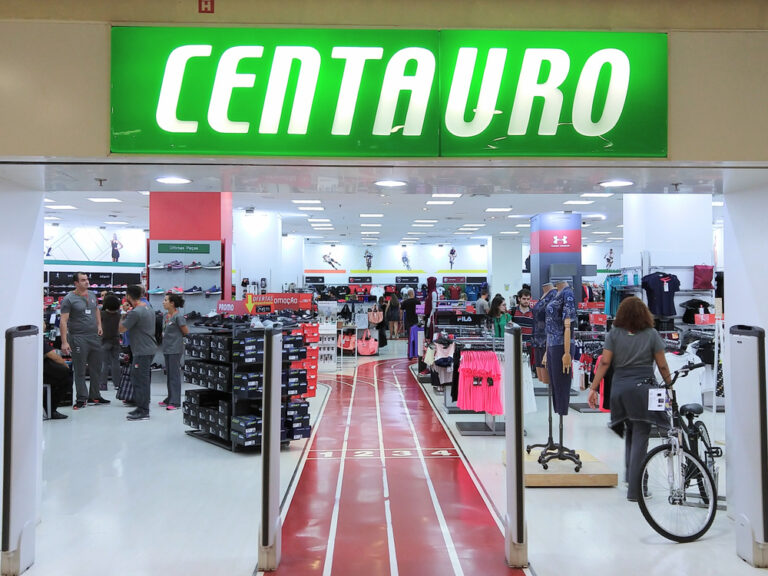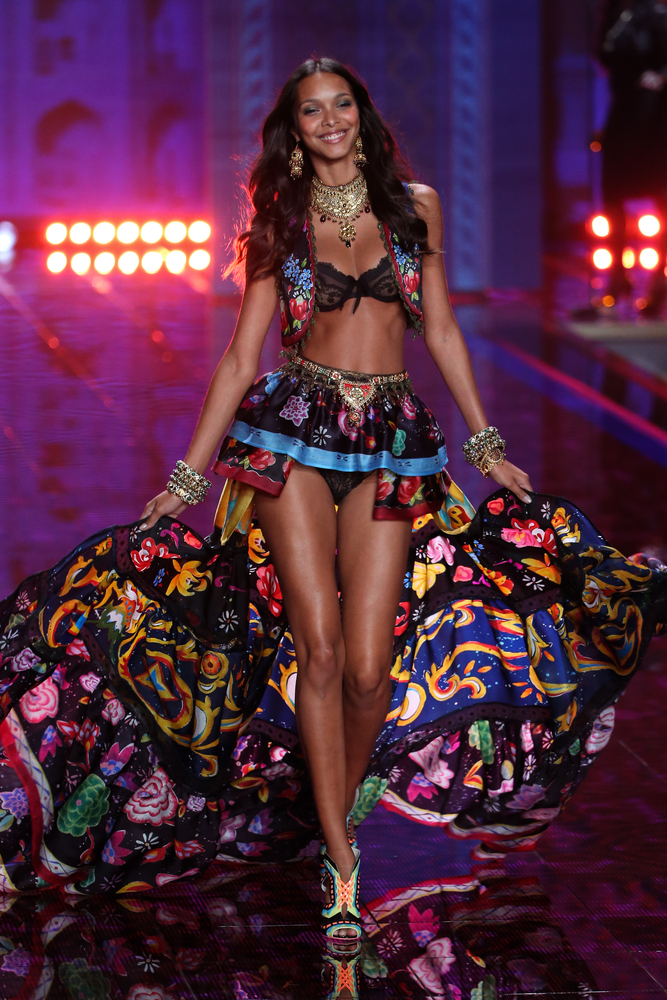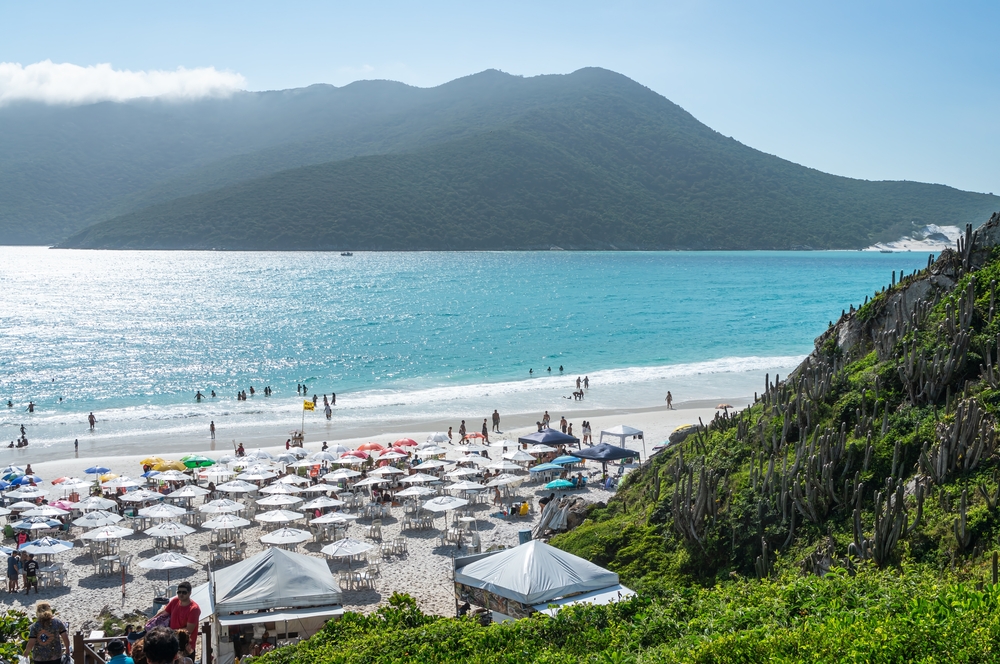Table of Content
ToggleCase Study: Iconic Brazilian Fashion Designers and Brands
When we talk about Brazilian fashion, several iconic designers and brands come to the fore, making significant contributions to both local and global fashion scenes. This section will spotlight three such influential entities: Francisco Costa, Adriana Degreas, and the brand Osklen.
Francisco Costa grew up in the small town of Guarani, Brazil, and embarked on his fashion journey in New York, where he attended the Fashion Institute of Technology. His talent and skill propelled him into renowned fashion houses like Oscar De La Renta and Gucci. Eventually, in 2003, he took the reins as the Women’s Creative Director of Calvin Klein. Costa brought a subtle Brazilian influence to Calvin Klein’s minimalist ethos, contributing to the brand’s timeless elegance. In 2016, he left Calvin Klein to launch his own sustainable luxury brand, Costa Brazil. The brand embodies the spirit of Brazil, focusing on sustainability and drawing inspiration from the country’s natural biodiversity.
Adriana Degreas is another Brazilian designer who has made waves on the international scene. With her innovative approach to luxury beachwear, she has redefined how the world perceives ‘resort wear.’ Degreas incorporates traditional Brazilian elements into her designs, presenting them in a sophisticated and modern light. Her signature ‘bikini with a twist’ and the glamorous caftans have become a must-have for vacationers worldwide, securing her place in wardrobes of global celebrities like Naomi Campbell and Kendall Jenner.
On the brand front, Osklen stands out as an icon of Brazilian fashion. Founded by Oskar Metsavaht, Osklen represents the harmonious blend of urban styles with nature-inspired elements, often referred to as ‘urban jungle.’ But beyond their aesthetic appeal, the brand has made significant strides in sustainable fashion. They are known for using eco-friendly materials, like organic silk and cotton, PET-bottles, and fish skin leather, setting an example for both Brazilian and international brands. Osklen’s journey to promote ‘sustainable luxury’ has had its challenges, mainly in sourcing and promoting new materials, but their success showcases a growing global appreciation for ethically produced fashion.
The journeys of Francisco Costa, Adriana Degreas, and Osklen exemplify the ingenuity, creativity, and commitment to sustainability of Brazilian fashion. They have confronted challenges, pushed boundaries, and emerged as leaders, making significant contributions to the fashion world. Their successes not only highlight the growing influence of Brazilian fashion internationally but also pave the way for future Brazilian designers to make their mark globally.
Sustainable and Ethical Practices in Brazilian Fashion
Sustainability and ethical practices have become increasingly significant in the global fashion industry, and Brazil is no exception to this trend. With its rich biodiversity and distinct cultural heritage, Brazilian fashion has an inherent affinity towards sustainability, which is reflected in the growing number of brands and designers embracing eco-friendly practices.
Among the leaders of this movement is Osklen, a brand synonymous with ‘sustainable luxury.’ Osklen’s commitment to sustainability is reflected in its extensive use of eco-friendly materials and socially responsible production methods. The brand uses organic silk and cotton, recycled PET bottles, and even fish skin, traditionally a waste product in the food industry, to create luxurious and innovative designs. By doing so, Osklen has not only minimized its environmental footprint but also set an example for other fashion brands in Brazil and around the world.
Another trailblazer is Francisco Costa, the former Creative Director of Calvin Klein. Costa returned to his roots with his brand, Costa Brazil, which epitomizes sustainable luxury. He partners with local artisans and cooperatives to ensure fair trade and uses sustainably sourced materials native to Brazil, such as piassava (a type of palm fiber), rubber, and Amazonian oils.
The footwear brand Veja has also gained international recognition for its ethical and sustainable approach. Veja uses organic cotton, wild rubber from the Amazon, and recycled plastic bottles to create stylish and eco-friendly sneakers. They maintain transparency in their production process and prioritize fair trade practices, ensuring the welfare of the farmers and producers they work with.
Brazilian designers are also innovating in terms of sustainable design techniques. Fernanda Yamamoto, for instance, has made a name for herself with her “upcycling” collections, creating beautiful designs from textile waste.
Brazil’s fashion education is also promoting sustainability. Institutions like the Instituto Rio Moda are incorporating sustainability into their curriculum, encouraging a new generation of designers to think about the environmental and social impact of their work.
The rise of sustainable and ethical practices in Brazilian fashion is a positive step towards a greener and more responsible industry. As more brands and designers join this movement, Brazilian fashion continues to inspire the world with its vibrant designs, respect for its natural heritage, and commitment to a sustainable future. By prioritizing sustainability without compromising on style, Brazilian fashion is demonstrating that eco-friendly fashion is not only possible but also the way forward.
The Future of Brazilian Fashion
As we move into the future, Brazilian fashion is poised to continue its journey of innovation, creativity, and sustainability. As a melting pot of diverse cultures, Brazil offers a unique platform for fashion evolution, creating trends that are rooted in its rich heritage yet forward-thinking.
Emerging designers are carrying forward the legacy of blending Brazilian influences with global trends. Designers like Gabriela Hearst are making waves on the global scene, bringing a fresh perspective to Brazilian fashion with her blend of luxury and sustainability. Similarly, Pedro Lourenço, despite his young age, has already showcased his talent on international runways, creating designs that reflect a modern reinterpretation of Brazilian aesthetics.
Sustainability will remain a key focus in the future of Brazilian fashion. As awareness of environmental issues grows, consumers are increasingly demanding eco-friendly products. This trend provides an opportunity for Brazilian designers and brands to leverage their rich natural resources and traditional crafting techniques to produce sustainable, high-quality fashion.
Technological innovation is also set to play a significant role in the future of Brazilian fashion. From incorporating tech in design and production to leveraging digital platforms for sales and marketing, Brazilian fashion is set to embrace the digital age.
Inclusivity is another promising trend. With an increasing emphasis on body positivity and cultural diversity in the global fashion narrative, Brazilian fashion, known for its celebration of different body types and multicultural influences, can lead the way in promoting a more inclusive fashion industry.
Lastly, the influence of Brazil’s vibrant street style and beachwear on global fashion is set to continue. From the Brazilian bikini to the Havaianas flip-flops, Brazilian casual and beachwear have a global appeal that transcends seasonal trends.
In conclusion, the future of Brazilian fashion is promising, full of opportunities to innovate, inspire, and influence. Rooted in its rich cultural heritage and propelled by a spirit of innovation and sustainability, Brazilian fashion is set to continue its exciting journey on the global stage.
Conclusion
Throughout our exploration of Brazilian fashion, the elements of vibrancy, diversity, and global influence have been undeniably prominent. Brazilian fashion represents a beautiful blend of indigenous, African, European, and Asian influences, creating a unique style narrative that is both culturally rich and innovative.
The colorful palette of Brazilian fashion, inspired by the nation’s breathtaking landscapes and lively festivals, has left its mark on the international fashion scene, from everyday streetwear to high-fashion runway designs. Brazilian designers have broken boundaries, with their work reflecting a remarkable fusion of tradition and modernity, craftsmanship and innovation.
Brazil’s emphasis on sustainability and ethical practices represents an important stride towards a greener and more responsible fashion industry. Brands like Osklen, Veja, and Costa Brazil have proven that it is possible to marry style and sustainability, inspiring other brands globally to follow suit.
Emerging designers are carrying the baton forward, creating designs that resonate with the global audience while staying true to their Brazilian roots. The future of Brazilian fashion, therefore, looks promising, full of exciting opportunities and potential.
The evolving landscape of fashion in Brazil reaffirms its significant role in the global fashion narrative. As we continue to see Brazilian fashion evolve, we can look forward to it inspiring, influencing, and reshaping trends around the world. The journey of Brazilian fashion, from its historical roots to its present-day global influence, and its promising future, is a testament to Brazil’s unique cultural vitality and creative spirit. In essence, Brazilian fashion is a celebration of Brazil itself – vibrant, diverse, innovative, and full of life.












2 Responses